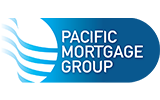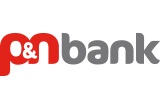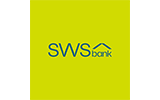There’s plenty of government support available to first-home buyers in Australia, such as low deposit schemes, cash grants and shared equity programs, to name a few. In fact, about a third of first-home buyers have used a government guarantee scheme in the last financial year, according to the National Housing Finance and Investment Corporation (NHFIC).
Below, we provide a comprehensive list of federal government initiatives and state-based support for first-home buyers.
Analysis by Money found first-home buyers in Queensland can currently access the most generous combination of incentives. An eligible buyer purchasing a $500,000 home with a 5% deposit could be in line for up to $55,778 worth of government contributions and concessions (made up of the $30,000 QLD first home owner grant, stamp duty exemption of $8,750, and a lender’s mortgage insurance saving of $17,028 through the national Home Guarantee Scheme).
Home Guarantee Scheme (HGS)
The Home Guarantee Scheme (HGS) is an Australia-wide government initiative that supports eligible home buyers to buy a property with a deposit as little as 2-5%.
Housing Australia guarantees up to 15% of the value of a first home and up to 18% for single parents or guardians to avoid the need for lender’s mortgage insurance (LMI). There are a few different programs available to home buyers through the HGS, including:
- First Home Guarantee (FHBG): For eligible first-home buyers to buy a home with a deposit starting from 5% with no LMI.
- Regional First Home Buyer Guarantee (RFHBG): For eligible first-home buyers to buy a home in a regional area with a deposit starting from 5% with no LMI.
- Family Home Guarantee (FHG): For eligible single parents or single legal guardians of at least one dependent to buy a home with a deposit starting from 2% with no LMI.
Home Guarantee Schemes compared
Eligibility criteria | |
First Home Guarantee |
|
Regional First Home Buyer Guarantee |
|
Family Home Guarantee |
|
Minimum deposit | |
First Home Guarantee | 5% |
Regional First Home Buyer Guarantee | 5% |
Family Home Guarantee | 2% |
Income threshold (annual) | |
First Home Guarantee | $125,000 for singles and $200,000 for joint applicants |
Regional First Home Buyer Guarantee | $125,000 for singles and $200,000 for joint applicants |
Family Home Guarantee | $125,000 (single applicant only) |
Places available for FY 2023-24 | |
First Home Guarantee | 35,000 |
Regional First Home Buyer Guarantee | 10,000 |
Family Home Guarantee | 5,000 |
| First Home Guarantee | Regional First Home Buyer Guarantee | Family Home Guarantee | |
|---|---|---|---|
Eligibility criteria |
|
|
|
Minimum deposit | 5% | 5% | 2% |
Income threshold (annual) | $125,000 for singles and $200,000 for joint applicants | $125,000 for singles and $200,000 for joint applicants | $125,000 (single applicant only) |
Places available for FY 2023-24 | 35,000 | 10,000 | 5,000 |
Participating lenders for the Home Guarantee Scheme
View lenders
- Commonwealth Bank
- NAB
- Westpac
- BankSA
- Bank of Melbourne
- St. George
- Australian Military Bank
- Australian Mutual Bank
- Auswide Bank
- Bank Australia
- Bank First
- Bank of Heritage Isle
- Bank of us
- BCU
- Bendigo Bank
- Beyond Bank Australia
- Border Bank
- Community First Bank
- Credit Union SA
- Defence Bank
- Firefighters Mutual Bank
- G&C Mutual Bank
- Gateway Bank
- Great Southern Bank
- Health Professionals Bank
- Indigenous Business Australia
- Illawarra Credit Union
- IMB Bank
- Mortgageport
- Newcastle Permanent
- P&N Bank
- People's Choice Credit Union
- Police Bank
- QBANK
- Queensland Country Bank
- Regional Australia Bank
- Teachers Mutual Bank
- The Mutual Bank
- UniBank
- Unity Bank
- BankWAW
First Home Super Saver (FHSS)
The First Home Super Saver (FHSS) scheme allows first-home buyers to withdraw up to $50,000 of voluntary super contributions (along with associated earnings) for a home deposit. Contributions released under the FHSS scheme can be used to buy a new or existing home in Australia.
From 1 July 2024, you can contribute up to $30,000 to your super each year at a concessional tax rate of 15%, instead of the marginal income tax rate. Under the FHSS scheme, you can apply to have a maximum of $15,000 of your personal super contributions from any one financial year released, and $50,000 in total.
Before signing a contract for your first home, you generally need to apply for and receive a FHSS determination from the Australian Taxation Office (ATO). After signing the contract, you then apply for release with your super fund.
You can only request a release under the FHSS scheme once. Buying property with super is also available to some investors and retirees.
Help to Buy scheme
The Help to Buy scheme is a new national shared equity scheme that supports eligible home buyers (singles earning less than $90,000 annually and couples earning less than $120,000 annually) to buy a home with a 2% deposit.
The government will provide an equity contribution of up to 40% for new homes, or 30% for existing homes. The government recoups its initial investment, plus a share of the capital gains when the property is sold. The Help to Buy Scheme will commence in 2024.
Expert tip on shared equity schemes

Mansour Soltani, Money.com.au's Home Loans Expert
“With any shared equity scheme, I would recommend thinking about your exit strategy. For example, if you’re hoping to gain enough equity to purchase a larger home later down the track, that may not be possible since you will need to share the equity created over time with the government once you’ve sold.”
Mansour Soltani, Money.com.au's Home Loans Expert
First Home Owner Grants (FHOG)
Most states and territories in Australia have a First Home Owner Grant (FHOG) program, which provides a one-off, tax-free cash grant for eligible first-home buyers to purchase a new home.
The First Home Owner Grant (FHOG) scheme was introduced on 1 July 2000 to offset the effect of the GST on home ownership.
The FHOG eligibility criteria is the same in every state and territory, including:
- Applicants must be 18+ years of age
- You must be an Australian citizen or permanent resident (or applying with someone who is)
- You must be a first-home buyer who has not owned a property or received the grant previously
There are also FHOG property requirements, including:
- You must be buying or building in the state or territory where the grant applies
- You must move into your new property within a year of buying, and live there for at least 6 or 12 months (depending on the state)
- The grant is not available to property investors, or properties purchased through a trust or company
First-home buyer grant in QLD
A new house, unit, townhouse or duplex (including off-the-plan)
A new granny flat built on a relative’s land
A home moved from one site to another (including kit homes or modular homes)
Substantially renovated homes
Other home buyer initiatives in QLD
- Queensland housing finance loan: This government loan helps eligible home buyers who can’t get finance via a traditional lender to buy a property with a 2% deposit or the difference between the maximum loan they’re eligible for and the property's purchase price. The Queensland housing finance loan can be used to purchase an established house, unit, townhouse or duplex, or to build a new home.
- Pathways Shared Equity Loan: This government loan option is available to eligible public housing tenants to buy the property they’re renting from the government. Loan repayments don’t exceed 35% of your nominated income and there’s no rent payable on the department’s share of the home.
See all first-home buyer grants in Queensland
Are first home buyers in QLD exempt from stamp duty?
Yes, first-home buyers in Queensland may be eligible for a full stamp duty exemption on new home valued under $700,000 and vacant land under $350,000. Concessional rates apply after that.
First-home buyer grant in NSW
A new house, townhouse, apartment or unit
Substantially renovated homes
Other home buyer initiatives in NSW
- Shared Equity Home Buyer Helper: Under this shared equity program, the NSW Government can contribute up to 40% of the purchase price for a new home or 30% for an existing property in exchange for equivalent equity. This allows eligible buyers to secure a mortgage with as little as a 2% deposit, while still owning a 60% majority share in the property. This program is income tested.
See all first-home buyer grants in New South Wales.
Are first home buyers in NSW exempt from stamp duty?
Under the First Home Buyers Assistance Scheme (FHBAS), first-time buyers in New South Wales may be eligible for a stamp duty exemption on properties valued under $800,000 or vacant land under $350,000. Above those amounts, concessional rates apply but the cut off for properties is $1 million and $450,000 for vacant under.
First-home buyer grant in VIC
A new house, townhouse, apartment or unit
Off-the-plan properties
Substantially renovated homes
Other home buyer initiatives in VIC
- The Victorian Homebuyer Fund (VHF): Under this shared equity scheme, eligible home buyers can buy a home with a 5% deposit, with the Victorian Government contributing up to 25% of the purchase price in exchange for equivalent equity in the property. Participants must buy back the government’s share in the property over time through voluntary payments, refinancing (borrowing against the equity in your home), or upon sale of the property.
- Buy Assist: This program allows eligible low-income home buyers to buy a home with no deposit. Buy Assist provides up to 25% of the purchase price of a new home in exchange for equity. This is a private sector model built around partnerships with developers.
See all first-home buyer grants in Victoria.
Are first home buyers in VIC exempt from stamp duty?
Yes, eligible first-time buyers can apply for a stamp duty exemption on properties valued under $600,000. Concessional rates then apply for properties valued up to $750,000.
First-home buyer grant in WA
A new house, unit, townhouse or duplex (including off-the-plan)
Substantially renovated homes
Other home buyer initiatives in WA
- Home Buyers Assistance: Eligible home buyers can receive a grant of up to $2,000 as reimbursement for certain expenses incurred when buying a home, including mortgage registration fees, conveyancing fees, some home loan fees, mortgage insurance premiums, etc.
- Keystart: A shared ownership loan, Keystart allows eligible home buyers to buy a property with a 2% deposit. Western Australia's Housing Authority funds up to 30% of the purchase price in exchange for equivalent equity in the property. Keystart provides fixed shared-ownership loans (your share in the property is fixed) and flexible shared ownership loans where you can refinance (borrow against the equity in your home) to buy more shares in the property.
See all first-home buyer grants in Western Australia.
Are first home buyers in WA exempt from stamp duty?
Yes, eligible first-home buyers in WA may get a stamp duty exemption for properties (home and land) valued under $450,000 and vacant land under $300,000.
First-home buyer grant in SA
First Home Owner Grant: Eligible first-home buyers in South Australia can get up to $15,000 towards buying or building a new home — regardless of how much the new property costs. In June 2024, the SA government removed property price caps for the FHOG. Eligible properties under the program include:
- A new house, unit, townhouse, duplex (including off-the-plan), vacant land
Other home buyer initiatives in SA
-
Shared Equity Option: Eligible home buyers can buy a property with a 5% deposit. The South Australian government (and lender HomeStart) contribute up to 25% of the purchase price (capped at $200,000) for a new home in exchange for equivalent equity in the property. Buyers will own a 75% majority share in the property. Participants can buy back the government's share in the property over time through voluntary payments, refinancing (borrowing against the equity in your home), or upon sale of the property. This program is income tested.
-
HomeSeeker SA: This initiative offers eligible lower-income buyers the opportunity to buy a home valued below $479,550 from properties listed with HomeSeeker SA before they’re listed for sale on the open market. HomeSeeker SA homes can only be sold to pre-approved eligible buyers.This program is income tested. Government housing tenants are automatically eligible to buy through HomeSeeker SA.
See all first-home buyer grants in South Australia.
Are first home buyers in SA exempt from stamp duty?
Yes, eligible first-home buyers in SA may get a stamp duty exemption for properties valued under $650,000 and vacant land under $400,000. Concessional rates then apply for properties valued up to $700,000 (or $450,000 for vacant land).
First-home buyer grant in the ACT
There’s no First Home Owner Grant in the ACT. It was replaced by the Home Buyer Concession Scheme which provides eligible first-home buyers a stamp duty exemption for properties valued under $1,000,000 based on household income and number of dependent children. Concessional rates apply after that. In 2023-24, the concession is capped at $34,504. All properties in the ACT are eligible for this scheme.
First-home buyer grant in the NT
A new house, unit, townhouse or duplex (including off-the-plan)
A home moved from one site to another
Substantially renovated homes
Other home buyer initiatives in the NT
- HomeBuild Access: This initiative offers eligible buyers with a household income of less than $127,500 the opportunity to buy a new home with a 2.5% deposit. The Northern Territory Government loans up to 17.5% of the purchase price. Loan terms of up to 30 years are available. This program is income tested.
See all first-home buyer grants in the Northern Territory.
Are first home buyers in the NT exempt from stamp duty?
The only stamp duty exemption in the Northern Territory is the House and Land Package Exemption (HLPE) which applies to house and land packages purchased before 30 June 2027 (subject to conditions).
First-home buyer grant in TAS
A new house, unit, townhouse or duplex (including off-the-plan)
Kit homes
Other home buyer initiatives in TAS
- MyHome shared equity program: Under this shared equity program, eligible home buyers can buy a home with a 2% deposit. Homes Tasmania contributes up to 40% of the purchase price (up to $200,000) for a new home or 30% for an existing property (up to $150,000) in exchange for equivalent equity. Homes Tasmania’s share must be paid out within 30 years.
See all first-home buyer grants in Tasmania.
Are first home buyers in TAS exempt from stamp duty?
There are no stamp duty exemptions for first-home buyers in Tasmania, but eligible first-home buyers can get a 50% concession for properties valued under $600,000.







